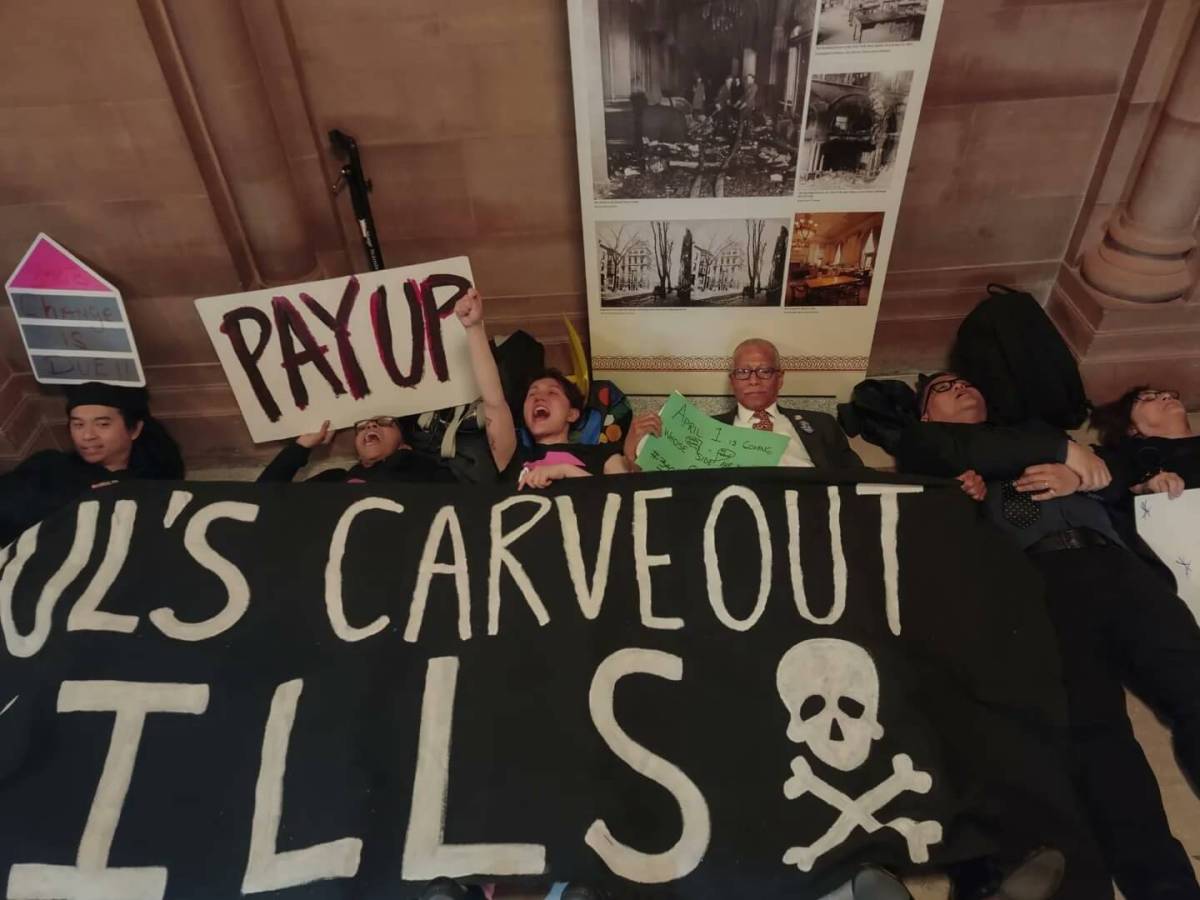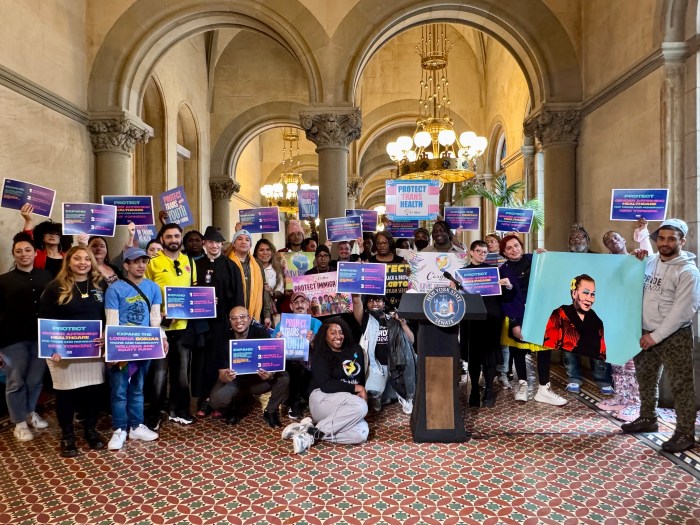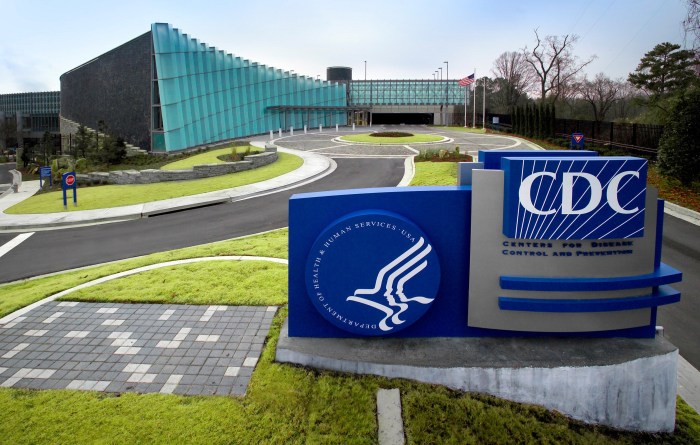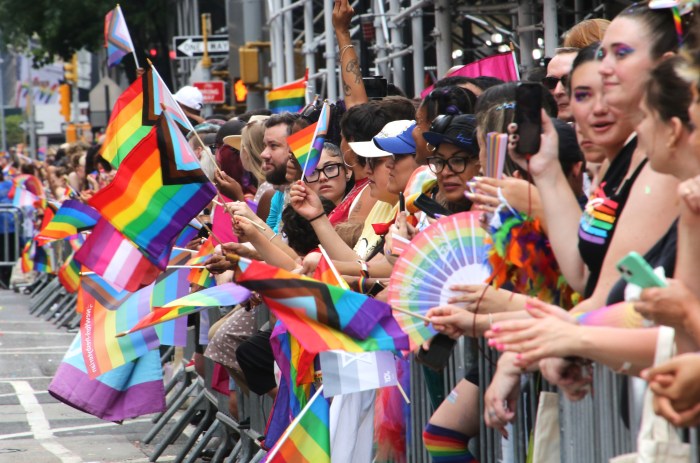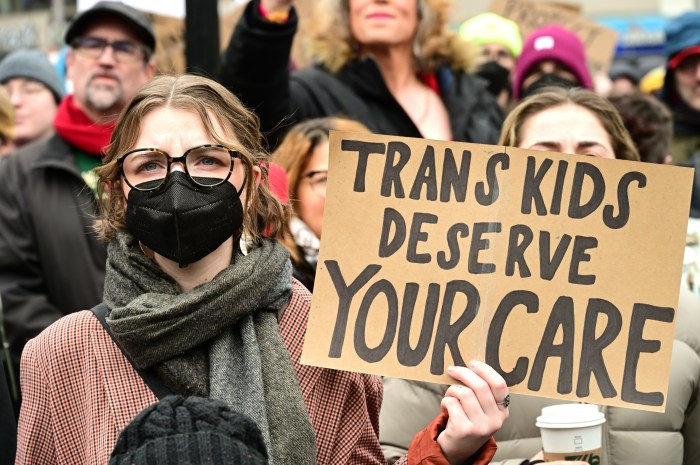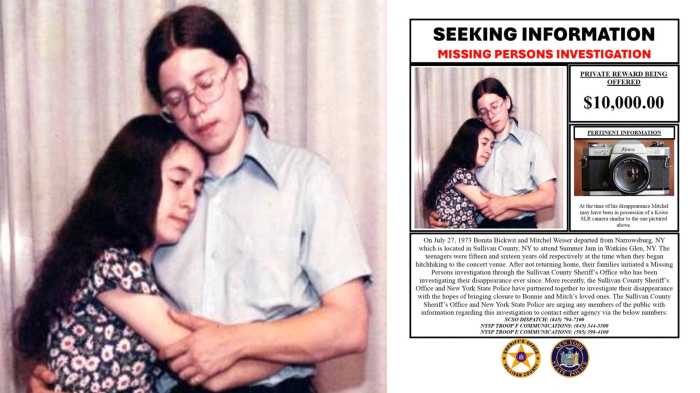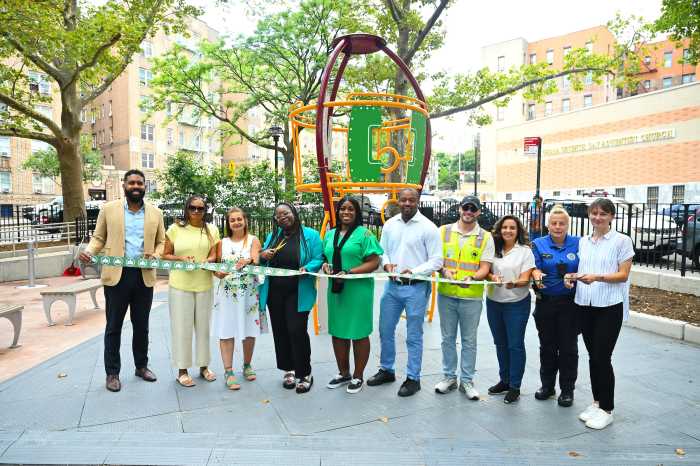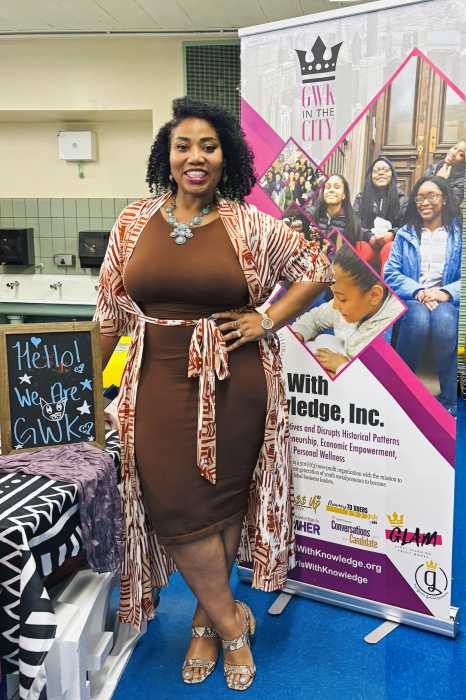A crowd of advocates and lawmakers gathered at Governor Kathy Hochul’s Manhattan office on March 31 to protest the state’s plan to overhaul a drug discount program that has allowed non-profit providers and safety net hospitals in the state to save money on medication and redirect resources to other areas of need.
The protest marked the latest in a series of demonstrations led by non-profit groups and health providers — many of which serve LGBTQ individuals and people living with HIV — over the looming threats to what is known as the federal 340B program, a drug discount initiative that requires drugmakers to give medication to certain providers at discounted rates.
Under the 340 program, pharmaceutical companies participating in Medicaid sell discounted drugs to managed care providers, and those providers, in turn, save money, get reimbursed by the federal government, and redirect those funds to educational initiatives, transportation costs, and other health and wellness-related services for clients.
The precarious state of 340B funding has been evident over the last several years as the state has weighed changes to the program — first under former Governor Andrew Cuomo and now under the Hochul administration. Advocates have succeeded in delaying the cuts in recent years, but now, with the state budget in the final stretch, advocates are again warning of disaster if the changes are implemented.
“Governor Hochul tells us that addressing health equity and improving access to care for the LGBTQIA+ community and communities of color are priorities,” said Jacqui Kilmer, the chief executive officer of Harlem United, which provides healthcare, housing, prevention, and supportive services to New Yorkers. “But actions speak louder than words, and that simply cannot be true if the Governor allows this ill-conceived carve-out to go through. Millions of New Yorkers across the state will be the losers. The time is now, Governor Hochul: Do the right thing and stop the carve-out now.”
Advocates who rallied on March 31 warned that changes to life-saving care and wraparound services — including food, housing, transportation, and medication management — will have a negative impact on 2.3 million people in New York State. The state is vowing to move ahead with a different pharmacy benefit program, NYRx, which the Hochul administration insists would actually boost funding for the many non-profit organizations and hospitals that have warned that the changes will significantly slash funding.
“Under the new model, the Medicaid program will pay pharmacy costs directly, removing middlemen such as pharmacy benefit managers,” State Medicaid Director Amir Bassiri wrote in a March 30 op-ed in the Buffalo News. “The new process will create transparency in reimbursements to pharmacies, leverage the state’s purchasing power to negotiate with drug manufacturers, and streamline practitioner administration.”
In the meantime, State Senator Gustavo Rivera of the Bronx has introduced Senate Bill S5136, which is viewed as a compromise to the 340B carve-out. The legislation, which is currently in the Health Committee, has drawn more than a dozen co-sponsors, including out State Senator Brad Hoylman-Sigal of Manhattan.
The culmination of the state budget process has coincided with 340B rallies in different parts of the state, including Albany, where advocates held a die-in earlier in the week alongside State Senator Robert Jackson of the Bronx and Manhattan. The March 31 demonstration in Manhattan brought support from members of the City Council, including out Health Committee Chair Lynn Schulman.
“Healthcare is a human right, but not when you can’t afford it,” Schulman said in a written statement. “Section 340B of the Public Health Service Act is a lifeline for uninsured and vulnerable patients, including members of the LGBTQ+ community. I urge the Governor and Legislature to include a compromise plan in the state budget that ensures the health of all New Yorkers is not compromised.”
Providers known for serving LGBTQ individuals, such as Housing Works, Harlem United, Alliance for Positive Change and Callen-Lorde, are weighing whether to boycott New York City Pride in June if the governor proceeds with the 340B carve-out. Buffalo Pride has already signaled to the governor that she is not welcome at Buffalo’s Pride festivities.
Another key development out of Buffalo emerged recently when Evergreen, which is a safety net provider serving 24,000 people in that part of New York State, sought to resist the forthcoming change by filing a lawsuit alongside Heritage Health and Housing, which runs a Harlem-based health center to more than 5,500 patients.
“Although the Department of Health claims that it seeks to promote health equity and reduce health disparities, by pressing forward with the ‘carve-out,’ an ill-conceived relic of the Cuomo era, it will only serve to increase those disparities,” Sandra Gale, Heritage’s chief executive officer and general counsel, said in a written statement.

